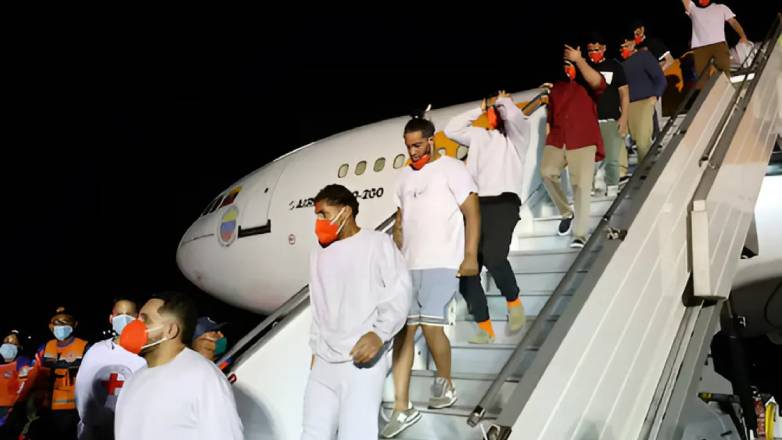U.S. Resume Deportation Flights to Venezuela:
The United States has recently resumed deportation flights to Venezuela, marking a significant development in U.S.-Venezuela relations and immigration policy. A recent flight carried 175 migrants, including a gang leader, representing the third such flight since the U.S. and Venezuela reached an agreement to restart deportations.
Background
Historically, deportation flights from the U.S. to Venezuela were halted due to strained diplomatic relations and concerns over human rights conditions in Venezuela. However, in February 2025, the Trump administration announced that Venezuela, led by President Nicolás Maduro, had agreed to accept deported Venezuelan nationals, including individuals associated with criminal organizations such as the Tren de Aragua gang. This agreement was facilitated by U.S. envoy Richard Grenell and also resulted in the release of six Americans detained in Venezuela.
Recent Developments
On March 30, 2025, a deportation flight carrying 175 Venezuelan migrants arrived in Venezuela. Among the passengers was an individual identified as the leader of the criminal gang "El Cagón" from the state of Trujillo. Venezuelan Interior Minister Diosdado Cabello received the deportees and stated that, contrary to some reports, none of the individuals were members of the Tren de Aragua gang
Legal and Human Rights Concerns
The resumption of deportation flights has sparked legal challenges and human rights concerns. In mid-March 2025, U.S. District Judge James Boasberg issued a temporary restraining order halting deportations under the Alien Enemies Act of 1798, a law invoked by the Trump administration to expedite the removal of individuals deemed threats to national security. Despite this order, deportation flights continued, leading to further legal disputes and criticisms from human rights organizations.
Diplomatic Implications
The agreement to resume deportation flights indicates a complex dynamic between the U.S. and Venezuela. While it suggests a level of cooperation, it does not necessarily signify a broader thawing of relations. The U.S. continues to have significant policy differences with the Maduro government, and the deportation agreement appears to be a pragmatic arrangement rather than a shift in diplomatic stance.
Conclusion
The resumption of U.S. deportation flights to Venezuela, highlighted by the recent arrival of 175 migrants including a gang leader, underscores the evolving and multifaceted nature of immigration enforcement and international diplomacy. As legal challenges and human rights debates continue, the situation remains fluid, reflecting broader tensions and negotiations between the two nations.







